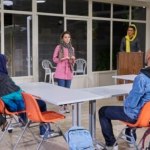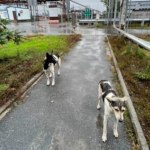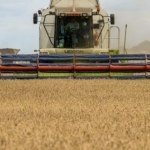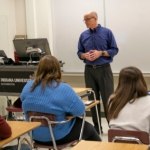14 March 2023
A Japanese company has found a way to turn unwanted rice into plastic goods.
One company is working with farmers in the coastal town of Namie. Nearby is the Fukushima nuclear center, closed since a nuclear disaster there in March 2011.
Jinichi Abe is a local rice farmer. He says people do not want to buy his rice because they worry it is radioactive. The farmer has been trying for years to recover from the economic effects of the disaster.
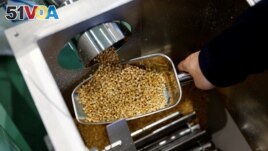
Takemitsu Imazu, President of Biomass Resin Fukushima, shows rice to Reutersin Namie, Fukushima Prefecture, Japan February 28, 2023. (REUTERS/Kim Kyung-Hoon)
Now, he has a new way to sell his rice. Tokyo-based company Biomass Resin opened a factory in Namie in November. It turns locally grown rice into pellets for use in manufacturing. The pellets can be formed into all kinds of products, including plastic tools, food containers, shopping bags and souvenirs.
"Without growing rice, this town can't recover," the 85-year-old Abe told Reuters news agency. He said that in the years since the disaster, he has tried selling rice as animal feed, among other things. "Even now, we can't sell it as Fukushima rice," Abe said. "So having Biomass come was a huge help. We can grow rice without worries."
Officials ordered people in the area to flee when the nuclear factory's reactors exploded and released radiation. The government permitted some people to return to their lives in Namie in 2017 after a major cleanup of the area.
About 80 percent of the town's land remains off-limits and currently about 2,000 people live there. About 21,000 people lived in Namie before the accident.
Town official Satoshi Konno admits things are still difficult for people in the area. "We want businesses that will create as many jobs as possible - basically, manufacturing," he said.
Since 2017, eight companies have come back. These include a concrete manufacturing center and an electric vehicle battery recycler. Those companies created about 200 jobs. The town is under discussions with still more companies and research centers that might bring in more people.
Takemitsu Imazu is president of Biomass Resin Fukushima. He told Reuters that even though the area has mostly recovered, the economy is still severely suffering. "By building our factory here, we want to bring jobs and invite people back."
Imazu says the plastic products created from rice are not biodegradable, meaning they cannot be broken down into other material through natural processes. However, combining rice and plastic cuts down on the amount of carbon needed during production, he added. The company also says growing more rice in Namie reduces overall levels of atmospheric carbon dioxide.
In addition, nuclear experts say rice naturally takes in little radioactive material.
Biomass Resin now employs 10 people in Namie, including a 20-year-old who returned, and the company hopes to expand. It uses only about 50 tonnes of Namie rice. The rest of the 1,500 tonnes needed is mainly from elsewhere in Fukushima. But the company says it will buy a larger amount from Abe and his cooperative next year, grown on the freshly cleared fields.
I'm Bryan Lynn.
Reuters reported this story. Bryan Lynn adapted the report for VOA Learning English.
_
Words in This Story
pellet – n. a small, hard ball of metal, grain or other material
shopping bag – n. a soft container usually made with paper or plastic and used to carry goods from a store
souvenir – n. something people buy and keep to remember a special event or a vacation visit
concrete – n. a hard, strong material that is used for building and made by mixing cement, sand, and broken rocks with water






